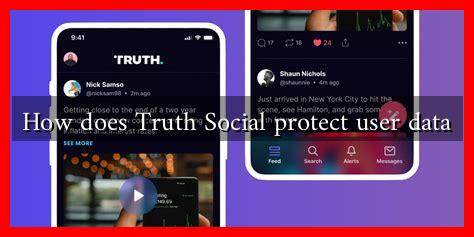-
Table of Contents
How Does Truth Social Protect User Data?
In an era where data privacy is a growing concern, social media platforms are under increasing scrutiny regarding how they handle user information. Truth Social, a platform launched by former President Donald Trump’s media company, aims to provide a space for free speech while also prioritizing user data protection. This article explores the measures Truth Social employs to safeguard user data, the challenges it faces, and the implications for users.
Understanding Truth Social’s Data Protection Framework
Truth Social positions itself as a proponent of user privacy and free expression. To achieve this, the platform has implemented several key strategies to protect user data:
- Data Encryption: Truth Social utilizes encryption protocols to secure user data both in transit and at rest. This means that any information shared on the platform is encoded, making it difficult for unauthorized parties to access it.
- User Control: The platform allows users to manage their privacy settings actively.
. Users can choose what information they share and with whom, giving them greater control over their data.
- Minimal Data Collection: Truth Social claims to collect only the data necessary for its operations. This approach minimizes the risk of data breaches and misuse.
- Regular Security Audits: The platform conducts regular security assessments to identify and rectify vulnerabilities, ensuring that user data remains protected against emerging threats.
Challenges in Data Protection
Despite its commitment to user privacy, Truth Social faces several challenges in protecting user data:
- Regulatory Scrutiny: As a social media platform, Truth Social is subject to various data protection regulations, including the General Data Protection Regulation (GDPR) in Europe and the California Consumer Privacy Act (CCPA) in the United States. Compliance with these regulations can be complex and resource-intensive.
- Public Trust: Given the controversial nature of its founding and leadership, Truth Social must work hard to build trust with its user base. Any data breach or misuse of information could severely damage its reputation.
- Technological Threats: Cybersecurity threats are constantly evolving. Truth Social must stay ahead of hackers and malicious actors who seek to exploit vulnerabilities in its system.
Case Studies and Comparisons
To better understand how Truth Social’s data protection measures stack up against other platforms, we can look at some notable case studies:
- Facebook’s Cambridge Analytica Scandal: In 2018, Facebook faced backlash after it was revealed that user data was harvested without consent for political advertising. This incident highlighted the importance of transparency and user consent in data handling.
- Twitter’s Data Breach: In 2020, Twitter experienced a significant data breach that compromised the accounts of high-profile users. This incident underscored the need for robust security measures and user awareness regarding data privacy.
Truth Social can learn from these examples by ensuring that it maintains transparency in its data practices and prioritizes user consent and security.
Statistics on User Data Privacy
According to a survey conducted by Pew Research Center in 2021:
- 79% of Americans expressed concern about how their data is being used by social media companies.
- 64% of users believe that the benefits of social media do not outweigh the risks to their privacy.
These statistics highlight the critical importance of data protection for social media platforms, including Truth Social. Users are increasingly aware of their rights and are demanding better privacy practices.
Conclusion
Truth Social aims to carve out a niche in the crowded social media landscape by prioritizing user data protection. Through encryption, user control, minimal data collection, and regular security audits, the platform seeks to build a secure environment for its users. However, it must navigate challenges such as regulatory scrutiny, public trust, and technological threats. By learning from past incidents in the industry and staying committed to transparency and user consent, Truth Social can enhance its reputation as a platform that genuinely values user privacy.
As users become more informed about their data rights, platforms like Truth Social must adapt and evolve to meet these expectations. The future of social media will likely hinge on how well these platforms can protect user data while fostering an environment of free expression.
For more information on data privacy regulations, you can visit the Australian Privacy Principles website.





